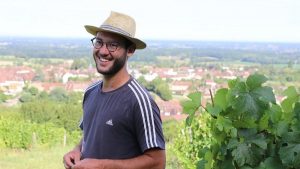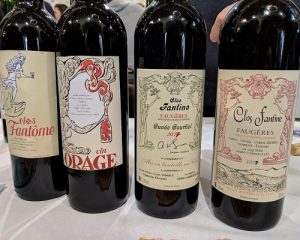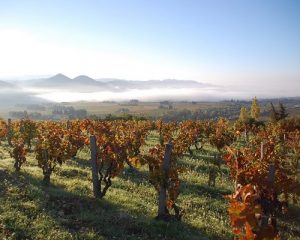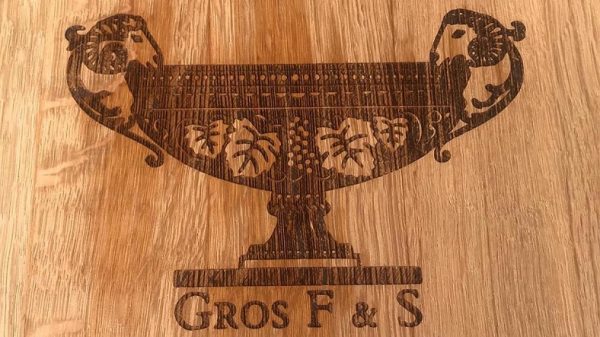
At the helm of his family domain since 1984, Bernard Gros has gained a solid reputation for his work on Burgundian terroirs that get wine lovers dreaming.
The Gros family is one of those Burgundian clans that has seemingly been in the region since the dawn of time, and their line of inheritance hasn’t been the easiest to follow. With this surname featuring on estates dotted all over the local vineyards, we should distinguish the domain in question from its familial peers nearby. The original domain, Domaine Louis Gros, was split into three to share between his children, producing three distinct estates in the 1960s: Gros Frère et Soeur, François Gros, and Jean Gros…the latter of which eventually gave rise to Domaines Anne Gros and A-F. Gros. All clear?
The history of Gros Frère et Soeur began with Colette and Gustave, offspring of Louis Gros, who took on their inheritance in 1963 and thus launching their very own domain in Vosne-Romanée. Their land covers 20 hectares, including four parcels of prestigious grands crus: Richebourg, Echézeaux, Grands-Echézeaux, and Clos de Vougeot.
In 1984, their nephew Bernard took up the torch after Gustave’s untimely death. Since then, Bernard has experimented with his own style, producing wines that are much richer in character. At the end of the 90s, he tore up any vines he deemed to have too poor quality, replacing them with finer clones. Bernard also worked to expand the domain, creating a 12-hectare parcel of Hautes-Côtes-de-Nuits – three hectares of white, nine of red – in the hamlet of Concoeur-et-Corboin.
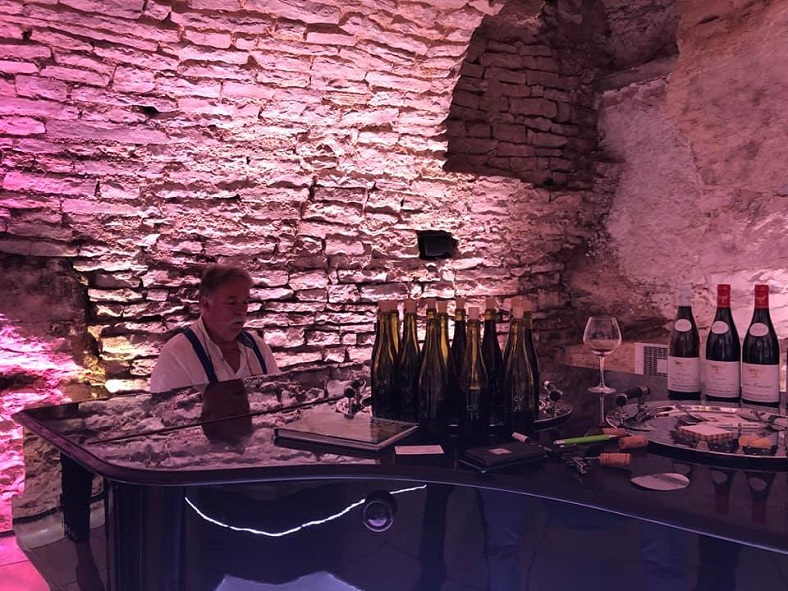
A so-called ‘classic’ vinification, on the other hand, has been kept in place. This involves short vatting, no maceration before fermentation, and maturation in new casks for the grands crus (100%) and the premiers crus (50%). Our vintner has chosen to restrict his yields, as this gives an extra boost of depth and concentration to the fruit on the vines. In terms of vinification, the wines from Domaine Gros Frère et Soeur are no longer filtered, allowing the cuvées to develop a fuller aromatic palette. The estate’s best bottles are very full-bodied, so they need time before they can be properly enjoyed. Once the moment comes, though, and optimal harmony has been reached, you’re promised a gorgeous tasting moment.
Speaking of harmony, Bernard is also a keen musician alongside his wine making. His Vosne-Romanée cellar is home to a superb Steinway piano. He’s convinced that there are ways for wine and music to complement each other, as is his son Vincent. The latter has taken a much bigger role at the domain recently, taking his place in their duet both at the piano and in the vineyards.

